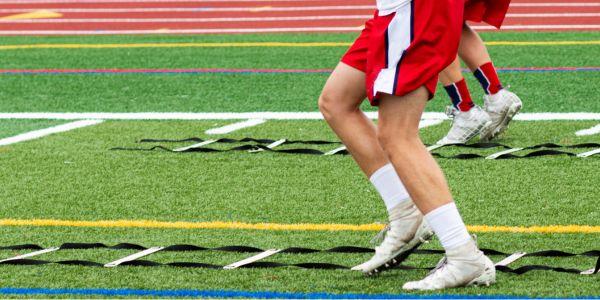Have a Calm Mindset to Reach Peak Performance
Overthinking can cloud kids’ judgment and send too many signals to their bodies at one time.
Philadelphia 76ers star Ben Simmons, after the 108-103 Game 2 loss to the Boston Celtics, tweeted about his “overthinking” during the game.
He committed five turnovers, had only one point and failed to make any field goals, which was the first time in his rookie career.
He confessed after the game that his mind got in the way and his poor performance was entirely “self-inflicted.”
“It was mainly what I did to myself. I think mentally, I was thinking too much,” Simmons tweeted after Game 2.
Do your athletes overthink? Overthinking can take on many forms for athletes.
Most of the time, athletes overthink their decisions when performing. In other words, they become indecisive about their plan.
Athletes also overthink when they focus too much on the “how to” or technique when performing.
They get lost in trying to have perfect form and lose sight of the intended goal to win the point, score a basket, hit a good shot or execute the play.
What’s more, athletes overthink when they devote too much time to focusing on outcomes. For example, they might worry about the score at the end of the game and then lose focus on the current play.
Perfectionists are notorious for overthinking their performance. They try too hard to be perfect and “play by the book” and sabotage their own performance.
However, any athlete can overthink—even a pro!
Simmons wants to do the right thing and fulfill his potential, but this can lead to trying too hard–which is what happened in Game 2.
When we work with athletes, we encourage them to trust in their skills and not overthink.
Here are two strategies to help kids stop overthinking:
1. Kids need to be decisive. They should stop second-guessing their initial decision.
For example, if kids first think, “shoot,” they should do it and refrain from hesitating or thinking they have a better option.
2. Young athletes should play athletically. They have to trust in their skills and play on autopilot.
This means that they have done all the training and it’s time to put the training to the test. They need to let go of perfect form and instead just react or “just do it.”
Related Articles on Youth Sports:
- Tips for Playing Under Pressure
- Addressing Outbursts in Youth Sports
- How Participating in Sports Gives Kids an Edge in Life
*Subscribe to The Sports Psychology Podcast on iTunes
*Subscribe to The Sports Psychology Podcast on Spotify
The Composed Sports Kid

“The Composed Sports Kid” audio and workbook digital download program for young athletes and their parents or coach helps kids cope with frustration and anger in sports. Help your sports kids learn how to manage expectations and let go of mistakes so they can keep their head in the game.
The Composed Sports Kid system is really two programs in one–one program to train parents and coaches how to help their kids practice composure, and one program that teaches young athletes–ages 6 to 13–how to improve composure, let go of mistakes quickly, have more self-acceptance, and thus enjoy sports more!

